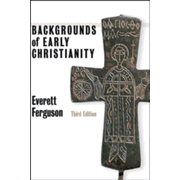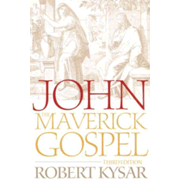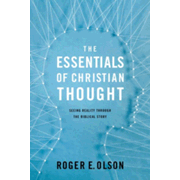OUR READING for the celebration of
Holy Trinity Sunday comes to us from the Gospel According to Saint John. Within
the text for the day we hear that a shift in strategy for authorities quickly occurred after our Lord completed
his attempt to cleanse the temple in Jerusalem. The temple powers wished to know
who it was that threatened the transactions of the people. Consequently, Jesus is portrayed here
as being engaged in conversation with the high, legalistic powers of his day. Of
the darkness within the confusion, we read…
Now
there was a man of the Pharisees, named Nicodemus, a ruler of the Jews. This
man came to Jesus by night and said to him, “Rabbi, we know that you are a
teacher come from God; for no one can do these signs that you do, unless God is
with him.”
Jesus answered him, “Truly, truly, I say to
you, unless one is born anew, he cannot see the kingdom of God.”
Nicodemus said to him, “How can a man be born
when he is old? Can he enter a second time into his mother’s womb and be born?”
Jesus answered, “Truly, truly, I say to you,
unless one is born of water and the Spirit, he cannot enter the kingdom of God.
That which is born of the flesh is flesh, and that which is born of the Spirit
is spirit. Do not marvel that I said to you, ‘You must be born anew.’ The wind
blows where it wills, and you hear the sound of it, but you do not know whence
it comes or whither it goes; so it is with everyone who is born of the Spirit.”
Nicodemus said to him, “How can this be?”
Jesus answered him, “Are you a teacher of
Israel, and yet you do not understand this? Truly, truly, I
say to you, we speak of what we know, and bear witness to what we have seen;
but you do not receive our testimony. If I have told you earthly things and you
do not believe, how can you believe if I tell you heavenly things?
No one has ascended into heaven but he who
descended from heaven, the Son of man. And as Moses lifted up the serpent in
the wilderness, so must the Son of man be lifted up, that whoever believes in
him may have eternal life.”
For God so loved the world that he gave his
only Son, that whoever believes in him should not perish but have eternal life.
For God sent the Son into the world, not to condemn the world, but that the
world might be saved through him. (John
3:1-17)
Which
Way Does the Wind Blow?
Our author described a scene that
no other gospel records. Within the telling we hear that after Jesus had taken
a whip to the money changers and other cultic powers of the temple, a member of the
religious leadership approached him. A man with the name of Nicodemus, as given by the
author... speaks to our Lord out of the darkness.
Nicodemus proclaimed that he accepted Jesus as a teacher. He recognized Jesus’ rabbinical successes in doing mighty works of divine authority. Today, we might ask ourselves whether the conversation came from Nicodemus out of sincere inquisitiveness or was simply bait flattery laid to entrap our Lord. We know that later history revealed that Nicodemus acted favorably in caring for Jesus even unto our Lord’s burial.
However, we see here that no question was asked by Jesus in return. Instead, Jesus apparently sensed the separation between them. He immediately stated the necessity for a person to be born “from above” or “again” in order to see the kingdom of God. In reaction to this statement, we often get mired down in trying to decide whether the original Greek word, “anothen” was meant by John for “from above” or “again”... or both. The question is indeed important, for heated query has led us along the path toward denominational differences in the Church. While the translation choice of this text is yet important, however, what seems much more profitable for us here is to focus on what Jesus meant concerning the “kingdom of God”.
Nicodemus proclaimed that he accepted Jesus as a teacher. He recognized Jesus’ rabbinical successes in doing mighty works of divine authority. Today, we might ask ourselves whether the conversation came from Nicodemus out of sincere inquisitiveness or was simply bait flattery laid to entrap our Lord. We know that later history revealed that Nicodemus acted favorably in caring for Jesus even unto our Lord’s burial.
However, we see here that no question was asked by Jesus in return. Instead, Jesus apparently sensed the separation between them. He immediately stated the necessity for a person to be born “from above” or “again” in order to see the kingdom of God. In reaction to this statement, we often get mired down in trying to decide whether the original Greek word, “anothen” was meant by John for “from above” or “again”... or both. The question is indeed important, for heated query has led us along the path toward denominational differences in the Church. While the translation choice of this text is yet important, however, what seems much more profitable for us here is to focus on what Jesus meant concerning the “kingdom of God”.
 |
Backgrounds of Early Christianity, Third Edition By Everett Ferguson |
You see, from the author’s perspective the "kingdom" seems far more important. Since Nicodemus was portrayed as a man who could not grasp the concept of that kingdom gracefully given, we may consider that by using him as a confused foil, John was trying to inform the Church concerning that graceful realm. Note here. however... in spite of the man’s shortsightedness Jesus revealed that one had to be born of water and the Spirit in order to see the promised kingdom. By saying this clearly in that conversation with the priest, Jesus recalled… and thus John echoed… what had been said clearly by the prophets. For example we refer to…
I
will sprinkle clean water upon you, and you shall be clean from all your filth,
and from all your idols I will cleanse you. A new heart I will give you, and a
new spirit I will put within you; and I will take out of your flesh the heart
of stone and give you a heart of flesh. And I will put my spirit within you,
and cause you to walk in my statutes and be careful to observe my ordinances. (Ezekiel 36:25-27)
Therefore, both Nicodemus and those in the
early Church were informed of the need for the duality of gifts poured out… of water and
the Spirit. As Christians then, we need to be cleansed both by the waters
of baptized purification while also being gifted by immersion in the Spirit. This was and
is still necessary for citizenry and growth in God's kingdom.
Knowing that this resides even today as an area of contest within the Church, I say examine the reading! Our author points us firmly to Jesus’ instruction that the presence of the Spirit cannot be contained or controlled by self-serving human power or ritual. Our Lord said that the Spirit (described using in the Greek, the word “pneuma”) blows freely where it will. So it is that those persons raised up and driven in the Spirit go where God wills and are not moved merely by human decree. This statement thus loomed very, very large for the early churches. In the latter decades of the first century, baptized and committed Christians were being cast out from the synagogues because of their faith declarations. Because of the efforts of the Pharisees, who were scattered yet powerful survivors of Roman oppression... many faithful Christians were cast adrift from their roots in Judaism. Therefore Christians did not know where they were going. Consequently, by relaying Jesus’ words to them, John’s message resounded soothingly across the stricken early Church.
Knowing that this resides even today as an area of contest within the Church, I say examine the reading! Our author points us firmly to Jesus’ instruction that the presence of the Spirit cannot be contained or controlled by self-serving human power or ritual. Our Lord said that the Spirit (described using in the Greek, the word “pneuma”) blows freely where it will. So it is that those persons raised up and driven in the Spirit go where God wills and are not moved merely by human decree. This statement thus loomed very, very large for the early churches. In the latter decades of the first century, baptized and committed Christians were being cast out from the synagogues because of their faith declarations. Because of the efforts of the Pharisees, who were scattered yet powerful survivors of Roman oppression... many faithful Christians were cast adrift from their roots in Judaism. Therefore Christians did not know where they were going. Consequently, by relaying Jesus’ words to them, John’s message resounded soothingly across the stricken early Church.
You see, blessed John
described that our Lord stood firm in the darkness of the past, but is also rooted by the Spirit in the storm-clouded
present. To us today then, this disciple yet states in this scripture that Jesus works in our darkened, sinful mist
through the Spirit and points us toward our own bright future.
 |
John, the Maverick Gospel, Third Edition By Robert Kysar |
Fresh
Breath of Freedom
John said that the early Christians were called into a living faith, even as the power of the Spirit calls us today.
Faith brings us a trusting citizenship that spills forward into living freedom within the
kingdom of God. As citizens of the kingdom exercising these rights purchased
by our Lord, we are no longer tied to legalisms that adhere us slavishly to earthly temples. Like our faith ancestors in John's day who were convicted by God’s Law,
we who are the baptized are also freed from condemnation.
We also are called to follow the guidance of the Holy Spirit who immerses us in the Word. As Christians we come to know the forgiveness of our sinful human filth down to the bottom of our souls... and are assured of the Resurrection of the body even unto life everlasting. This scriptural assurance is the power that forms the Church.
Remember! Through this freedom given the Holy Spirit gave us the written Word of God. Through Sacraments bestowed, the Spirit secures the saints of the Church despite rising persecutions. A right understanding of Holy Scripture was formed over-against egotistic Nicodemian confusions and the cast aside many heresies that followed.
I ask you, “Did not Jesus point out to Nicodemus that our Lord’s being “lifted up” upon the cross would reveal the miraculous coming of the kingdom of God?” Surely the sacrifice of our Lord upon the cross and the issue of water and blood poured from his body, focused our souls upon the mountainous chasm existing between the gushing embryonic waters of sinful human birth... and the heavenly realm of spiritual rebirth.
We also are called to follow the guidance of the Holy Spirit who immerses us in the Word. As Christians we come to know the forgiveness of our sinful human filth down to the bottom of our souls... and are assured of the Resurrection of the body even unto life everlasting. This scriptural assurance is the power that forms the Church.
Remember! Through this freedom given the Holy Spirit gave us the written Word of God. Through Sacraments bestowed, the Spirit secures the saints of the Church despite rising persecutions. A right understanding of Holy Scripture was formed over-against egotistic Nicodemian confusions and the cast aside many heresies that followed.
I ask you, “Did not Jesus point out to Nicodemus that our Lord’s being “lifted up” upon the cross would reveal the miraculous coming of the kingdom of God?” Surely the sacrifice of our Lord upon the cross and the issue of water and blood poured from his body, focused our souls upon the mountainous chasm existing between the gushing embryonic waters of sinful human birth... and the heavenly realm of spiritual rebirth.
I hold up the image of a hilltop “cross” road before you. Understand that Jesus’
life, death and Resurrection highlights the mysterious intersection between
“earthly things” such as water, bread and wine… and the very profound sacramental
“heavenly things” of Holy Baptism and the Eucharist. In the cataclysmic crucifixion event we
see his sacrifice upon the cross as the center of all redemption. We are privileged
to know the innocent Jesus crucified for us as “the Way, the Truth and the Life”.
“Why was this miraculous gift given?” we might ask. By our asking we avoid Nicodemus-like ignorance and learn that through the
power of the Holy Spirit working through the Gospel of John we can know the simplicity of the
Truth. In its simplicity this gospel was prepared for us as John related an oft-repeated
phrase. The reason for the gift was shown concisely as divine and perfect Love. I repeat that John said..,
“For
God so loved the world that he gave his only begotten Son, that whoever
believes in him should not perish, but have eternal life.”
By making that faith statement clearly and
concisely... blessed John gave the Church much more than just a catch phrase to be
lifted up before the Sanhedrin, the Coliseum, or in front of cameras at a
modern race track or football game. Within these few words written by the power of the Holy Spirit, John gave the everywhere and
for all time core proclamation of the good news. The words proclaim Jesus Christ crucified for our sake. This
central theme stated that even as we confess our sin and separation from God, we may be
forgiven through Jesus Christ. We are freed from the penalty of eternal death. We need
not do a sacrificial ritual. We do not need to purchase salvation, build a modern temple or eat a sacrificial lamb. We are forgiven not for the sake of our works,
but are provided reconciliation with God through faith given to us in Jesus Christ. Thus we can freely turn our lives to doing good works out of thankfulness
for what God has accomplished for us.
In summation we know that Christians brought into his Church through baptism are called by John to live in the here and now and praise God. We are to serve him personally and collectively all the days of our lives, whether those days be fair or foul. I say to you, “Thanks be to Almighty God for his grace!”
Certainly, God alone provides the intersection between the human and
divine by the death and Resurrection of his Son. Almighty God, expressed by the Church rightly as the Father, Son and
Holy Spirit, thus deserves continuing words of praise and thanksgiving. I pray that
you may echo this loudly in worship and carry this message out into this world of darkness. May the Light of God’s love guide you and be with you always.
May the Blessings of the Holy Spirit Empower Your Ministry!




No comments:
Post a Comment